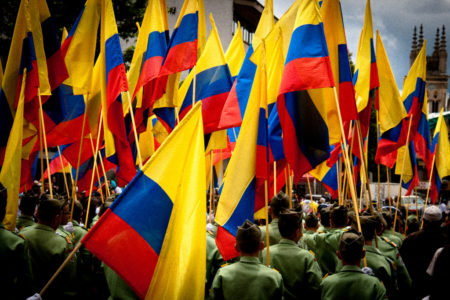
This article was originally published by IPI Global Observatory on 27 June 2016.
While a final peace accord is likely still a few weeks away, Colombia’s government and FARC guerrillas reached a momentous agreement on June 23. The consensus on the last of five substantive items in negotiations taking place in Havana, Cuba, since 2012 delineates conditions for a permanent ceasefire and the demobilization of the guerrilla movement, which had been by far the thorniest issue on the agenda. Though the parties have decided that “nothing is agreed until everything is agreed,” the accompanying Havana ceremony had the feel of the end of a 50-year war that has killed over 200,000 people and displaced six million.
Attending the ceremony was Colombian President Juan Manuel Santos; FARC Commander Timoleón Jiménez; Cuban President Raúl Castro and Norwegian Foreign Minister Borge Brende (representing the two guarantor countries); United Nations Secretary-General Ban Ki-moon and other senior UN officials; Presidents Nicholas Maduro of Venezuela and Michelle Bachelet of Chile; and many other world leaders and envoys. The impressive lineup sent a clear political message: no one should harbor doubts about the possibility of a peace agreement being signed, and the international community will put its weight behind it to ensure its success.
